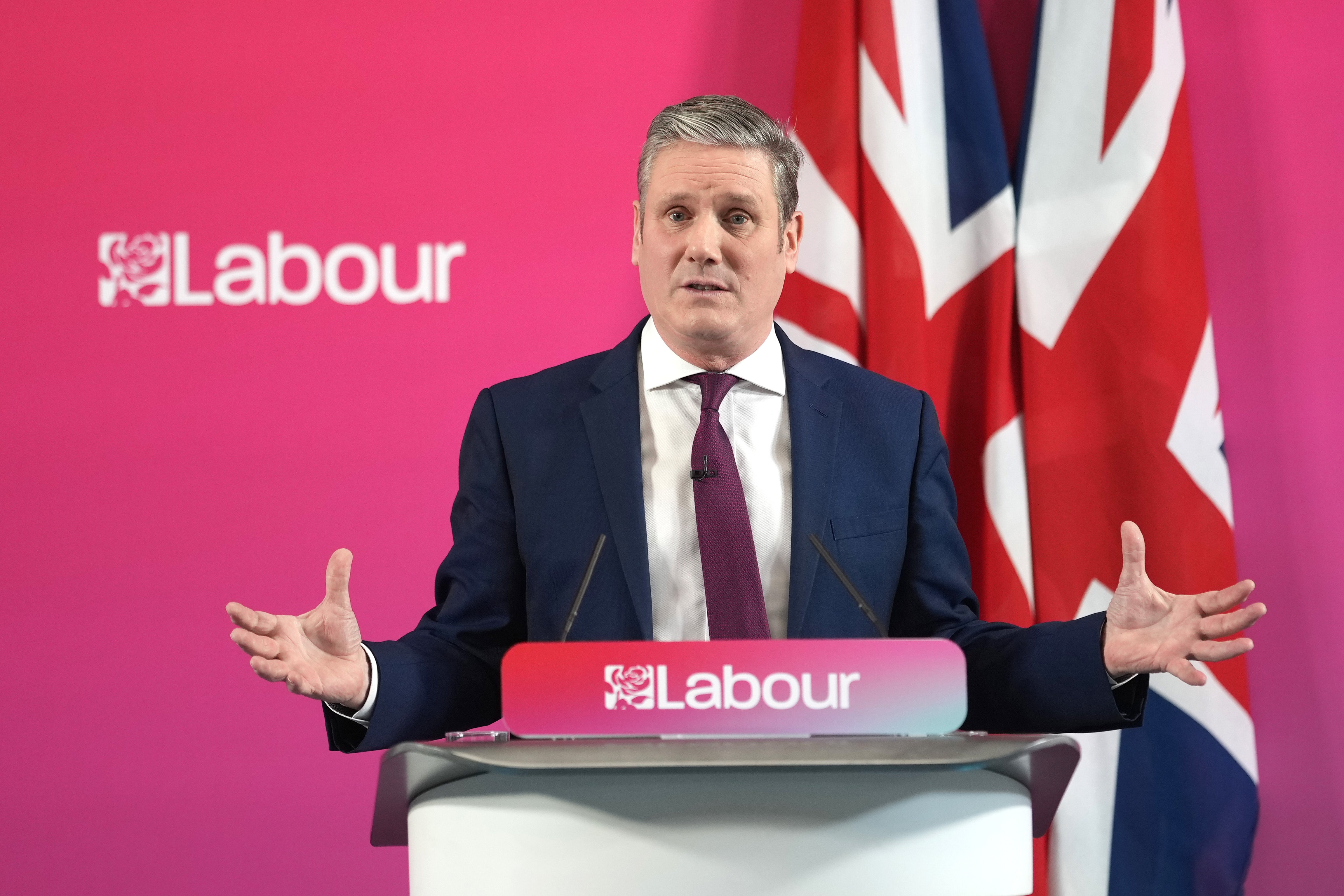Labour is hardening its stance on crime – it will pay off
Labour will make law and order a big issue in its campaign for the May local elections, writes Andrew Grice


Yvette Cooper, the shadow home secretary, told the Parliamentary Labour Party recently how, when she knocked on doors in her Castleford constituency, people raised antisocial behaviour and drug dealing rather than Downing Street parties. Yet that isn’t necessarily bad news for Labour.
Some opinion pollsters now show Labour ahead of the Tories on crime, traditionally an issue on which the Tories enjoy a lead. Labour rightly senses a Tory vulnerability amid rising crime, public concern over prosecution and conviction rates for offences such as rape and a backlog in the courts.
Boris Johnson and Priti Patel have been ticked off by the statistics watchdog for claiming that crime has fallen by 14 per cent; when fraud and computer misuse are included, it has risen by that amount since before the pandemic. It was a Labour mayor, Sadiq Khan, who ousted the under-performing Metropolitan Police commissioner Cressida Dick, leaving a populist home secretary in Patel flat-footed.
Labour will make law and order a big issue in its campaign for the May local elections. The party is hardening its line, suggesting that people who buy recreational drugs should be “named and shamed”. Although Angela Rayner went off script when she said police should shoot terrorists first and “ask questions second”.
Labour won’t lose too much sleep if such remarks remind voters that Keir Starmer is “not Jeremy Corbyn”. Steve Reed, the shadow justice secretary, said this week that under Corbyn, Labour “cared more about criminals than their victims”. Cooper’s overdue return to the shadow cabinet has upped Labour’s game on the issue.
Starmer is also distancing himself from the Corbyn era on defence – he has used the Ukraine crisis to underline the party’s support for Nato – and his left-wing critics fear he will do the same on the economy, despite hugging Corbynism close during his Labour leadership campaign.
With only about one in eight disaffected 2019 Tory voters switching to Labour, shadow ministers admit privately their party cannot rely on anti-Johnson sentiment and must now win positive support. That would become even more important if the Tories ditched Johnson.
Despite his rhetoric about “taking back control” of the UK’s laws through Brexit, the prime minister has often given the impression of someone who regards himself as above the law. His suspension of parliament was ruled illegal by the Supreme Court. The UK’s reputation on the global stage has been tarnished by his refusal to stick to international agreements such as the Northern Ireland protocol, even though he signed it himself.
Thankfully, Johnson’s desperate Jimmy Savile slur against Starmer backfired. In distancing himself from it, Sajid Javid, the health secretary, said Starmer did a “good job” and “deserves absolute respect” for his record as director of public prosecutions. Starmer aides suspect Johnson played his Savile card to “make us nervous about talking about Keir’s service as DPP” – which, Labour’s research shows, is a big asset in the public’s eyes. “We are not going to be knocked off talking about it,” said one ally. “Crime is a way to tell Keir’s back story.”
Johnson could not bring himself to apologise for suggesting Starmer failed to prosecute Savile, even after the Labour leader was forced to flee a mob outside parliament and received death threats following Johnson’s claim.
The prime minister’s jibe that Starmer is “a lawyer not a leader” is well past its sell-by date; this week, Johnson employed a private lawyer to help him fill out the police’s questionnaire about No 10 parties.
To keep up to speed with all the latest opinions and comment sign up to our free weekly Voices Dispatches newsletter by clicking here
Johnson’s reputation might be about to sink even lower, as he could be given a fixed penalty notice over Partygate. Not that this would result in him suddenly discovering respect for the law; his allies are making clear his intention to hang on to his job even if he is fined, even though two in three voters think he should resign if that happens.
Many Tory MPs are alarmed. They fear Johnson’s refusal to quit in such circumstances would destroy their party’s credentials on crime. “Being the party of law and order is in our DNA,” one told me. “We can’t be led by someone who has been fined for breaking lockdown laws.”
The inevitable contrast that would be made by Labour at the next general election – Starmer locked up criminals and terrorists, Johnson broke the law – might well tip many Tory backbenchers into voting against Johnson in a confidence vote. The politician who has always managed to keep one step ahead of his critics might find that his disrespect for the law finally catches up with him.






Join our commenting forum
Join thought-provoking conversations, follow other Independent readers and see their replies
Comments